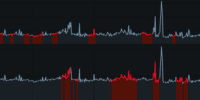Why Sleep Disorders Are Often Misdiagnosed as ADHD

Sleep disorders and attention deficit hyperactivity disorder (ADHD) share overlapping symptoms, leading to frequent misdiagnoses. This article explores the common misdiagnoses of sleep disorders as ADHD and the ways in which sleep deprivation can mimic ADHD symptoms.
Understanding the role of sleep disorders in the misdiagnosis of ADHD is crucial for accurate diagnosis and treatment. By examining strategies for accurately diagnosing and treating both sleep disorders and ADHD, this article aims to shed light on the complexities of these conditions and improve patient outcomes.
Key Takeaways
- Sleep disorders can often be misdiagnosed as ADHD due to overlapping symptoms such as difficulty concentrating, impulsivity, hyperactivity, and excessive daytime sleepiness.
- Misdiagnosis of sleep disorders as ADHD can lead to inappropriate medication for ADHD, potential side effects of ADHD medication, lack of addressing underlying sleep disorders, increased stress and anxiety, and delays in receiving appropriate educational support.
- Sleep deprivation can mimic ADHD symptoms by impairing attention, working memory, executive function, and impulse control. These symptoms may only be present when a person is sleep-deprived.
- It is important to consider sleep disorders in the diagnosis and treatment of ADHD, as treating sleep disorders can alleviate ADHD-like symptoms and improve cognitive function. Strategies for accurate diagnosis and treatment include thorough clinical interviews, validated questionnaires and rating scales, objective measures like polysomnography and actigraphy, ruling out other potential causes of cognitive impairment, and non-pharmacological interventions like CBT-I, sleep hygiene education, and lifestyle modifications.
The Overlapping Symptoms of Sleep Disorders and ADHD
The overlapping symptoms of sleep disorders and ADHD contribute to the frequent misdiagnosis of sleep disorders as ADHD. Both conditions can exhibit symptoms such as difficulty concentrating, impulsivity, and hyperactivity. These shared symptoms can make it challenging for healthcare professionals to accurately differentiate between the two disorders.
For example, individuals with sleep disorders may experience excessive daytime sleepiness, which can lead to difficulty paying attention and increased impulsivity, mimicking the symptoms of ADHD. Additionally, sleep disturbances can impact cognitive functioning, further complicating the diagnosis.
The misdiagnosis of sleep disorders as ADHD can have significant consequences, as the appropriate treatment approaches differ between the two conditions. Therefore, it is crucial for healthcare professionals to carefully evaluate the presence of sleep disturbances when assessing patients with ADHD-like symptoms to ensure accurate diagnosis and appropriate treatment.
Common Misdiagnoses: When Sleep Disorders Are Mistaken for ADHD
Misattributions of attention deficit hyperactivity disorder (ADHD) can occur when underlying sleep disorders are incorrectly identified. This common misdiagnosis can have a significant impact on children, as they may receive inappropriate treatment for a condition they do not have. Sleep disorders and ADHD share several overlapping symptoms, such as difficulty concentrating, hyperactivity, and impulsivity. However, it is essential to differentiate between the two conditions to ensure appropriate interventions. The table below highlights some common misdiagnoses and their impact on children:
| Misdiagnosis | Impact on Children |
|---|---|
| ADHD | Inappropriate medication, potential side effects, and lack of addressing underlying sleep disorders |
| Anxiety disorder | Increased stress and anxiety due to misdiagnosis and inadequate treatment |
| Learning disabilities | Delay in receiving appropriate educational support, as the underlying sleep disorder may affect cognitive functioning |
It is crucial for healthcare professionals to thoroughly assess for sleep disorders when evaluating children with symptoms resembling ADHD to avoid misdiagnoses and provide appropriate interventions.
How Sleep Deprivation Can Mimic ADHD Symptoms
Sleep deprivation can lead to symptoms that resemble those associated with attention deficit hyperactivity disorder (ADHD). The effects of sleep deprivation on cognitive functioning and behavior have been extensively studied. Sleep deprivation can impair attention, working memory, executive function, and impulse control, which are key domains affected in individuals with ADHD. These overlapping symptoms make it challenging to distinguish between ADHD and sleep disorders in clinical practice.
However, there are several key differences that can help differentiate between the two conditions. For instance, individuals with ADHD typically exhibit symptoms consistently across different settings and throughout their lives, while those with sleep disorders may only experience symptoms when sleep-deprived. Additionally, sleep disorders often present with other symptoms such as snoring, daytime sleepiness, and disrupted sleep patterns, which are not typically observed in ADHD.
It is crucial for clinicians to carefully evaluate and consider the possibility of sleep deprivation when assessing individuals with ADHD-like symptoms to ensure accurate diagnosis and appropriate treatment.
The Role of Sleep Disorders in ADHD Misdiagnosis
Impaired recognition and understanding of the underlying role of sleep disorders in the misdiagnosis of ADHD can hinder accurate assessment and appropriate treatment. Sleep disorders can have a significant impact on cognitive function, leading to symptoms that mimic those of ADHD. It is crucial to consider the presence of sleep disorders when planning treatment for ADHD.
- Sleep disorders can cause symptoms such as inattention, hyperactivity, and impulsivity, which are also characteristic of ADHD.
- Sleep deprivation can impair cognitive processes, including attention, memory, and executive functions, further complicating the accurate diagnosis of ADHD.
- Treating sleep disorders can alleviate ADHD-like symptoms and improve overall cognitive function, emphasizing the importance of considering sleep disorders in the treatment planning for ADHD.
Understanding the relationship between sleep disorders and ADHD is essential to avoid misdiagnosis and ensure appropriate interventions for individuals with sleep-related cognitive impairments.
Strategies for Accurate Diagnosis and Treatment of Sleep Disorders and ADHD
Accurately diagnosing and effectively treating individuals with cognitive impairments related to sleep and attention requires the implementation of comprehensive assessment strategies and targeted interventions.
To achieve an accurate diagnosis, healthcare professionals should employ a multi-faceted approach that considers various factors. This includes conducting thorough clinical interviews, utilizing validated questionnaires and rating scales, and employing objective measures such as polysomnography and actigraphy. Additionally, it is essential to rule out other potential causes of cognitive impairment, such as medical conditions and psychiatric disorders.
Once an accurate diagnosis is made, appropriate treatment options can be explored. These may include non-pharmacological interventions like cognitive-behavioral therapy for insomnia (CBT-I), sleep hygiene education, and lifestyle modifications. In some cases, pharmacotherapy may be necessary, although it should be used judiciously and with regular monitoring.
Collaborative care involving healthcare professionals from different disciplines is crucial to ensure comprehensive and effective management of sleep disorders and attention difficulties.
Frequently Asked Questions
What Are the Common Symptoms of Sleep Disorders and ADHD That Can Overlap?
Common symptoms of sleep disorders and ADHD that can overlap include difficulties with attention, hyperactivity, impulsivity, and problems with sleep. These shared symptoms can lead to misdiagnoses between the two conditions.
What Are Some Common Misdiagnoses That Occur When Sleep Disorders Are Mistaken for Adhd?
Common misdiagnoses of sleep disorders as ADHD include hyperactivity, impulsivity, and difficulty focusing. The impact of misdiagnosis on treatment can result in inappropriate medication use and neglect of underlying sleep issues.
How Does Sleep Deprivation Mimic Symptoms of Adhd?
Sleep deprivation can mimic symptoms of ADHD, making it difficult to distinguish between sleep disorders and ADHD. Common effects of sleep deprivation include inattention, hyperactivity, impulsivity, and poor executive functioning, which overlap with ADHD symptoms.
How Do Sleep Disorders Contribute to the Misdiagnosis of Adhd?
The misdiagnosis complexities of ADHD can be influenced by sleep disorders, leading to difficulties in accurately identifying and treating the condition. Understanding the impact of sleep disorders on treatment options is essential for improving diagnostic accuracy.
What Strategies Can Be Used to Accurately Diagnose and Treat Sleep Disorders and Adhd?
Accurate diagnosis of sleep disorders and ADHD requires the implementation of effective treatment strategies. By employing comprehensive assessments, considering a range of factors, and utilizing evidence-based interventions, healthcare professionals can enhance diagnostic accuracy and improve treatment outcomes for both conditions.









